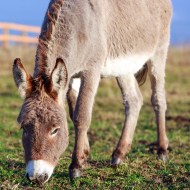
Blue Cross manifesto calls on MPs to better enforce animal welfare legislation
Animal charity Blue Cross has expressed concern about a lack of local authority resources and its effect on animal welfare.
The government has made significant local authority cuts in recent years, which the Blue Cross says is likely to have had a significant impact on officers to enforce and investigate animal welfare cases effectively. The charity is now calling for increased resources and training to ensure that officers have the necessary knowledge to apply to all pet welfare legislation.
The call forms part of Blue Cross’ new manifesto, New Parliament, New Start for Animals, which outlines the charity’s recommendations on topics including breed-specific legislation, shock collars, greyhounds and the microchipping of cats. It also includes a push for the regulation of animal sanctuaries and rehoming organisations and the better recognition of the benefits of pets for mental health and wellbeing.
“A new parliament signifies new opportunities and we hope this means significant and lasting change for animals, which safeguards and protects the vulnerable,” explained head of public affairs, Becky Thwaites. “We have a lot of new MP's to get to know and we are looking forward to bringing the issues in our manifesto to the forefront of their minds."
Blue Cross reports that while the majority of animal rehoming centres and rescue centres maintain high standards of animal welfare, some can become overwhelmed and struggle to meet animal welfare needs. As part of its new manifesto, the charity is calling on MPs to open a consultation on regulating such organisations and to introduce an accompanying inspection system to maintain high animal welfare standards.
Blue Cross is also calling on the Department of Health and NHS England to undertake a comprehensive review of the provision of Animal-Assisted Therapy for mental health patients. It comes after its 2019 report, ‘A link in the Chain: Tackling mental health, poverty and loneliness through pet ownership’, revealed the powerful impact pets can have on society.
The charity will be giving the manifesto to MPs, accompanied with a request to discuss the outcome in person. For further information, please visit bluecross.org.uk/manifesto



 The Veterinary Medicines Directorate (VMD) is inviting applications from veterinary students to attend a one-week extramural studies (EMS) placement in July 2026.
The Veterinary Medicines Directorate (VMD) is inviting applications from veterinary students to attend a one-week extramural studies (EMS) placement in July 2026.